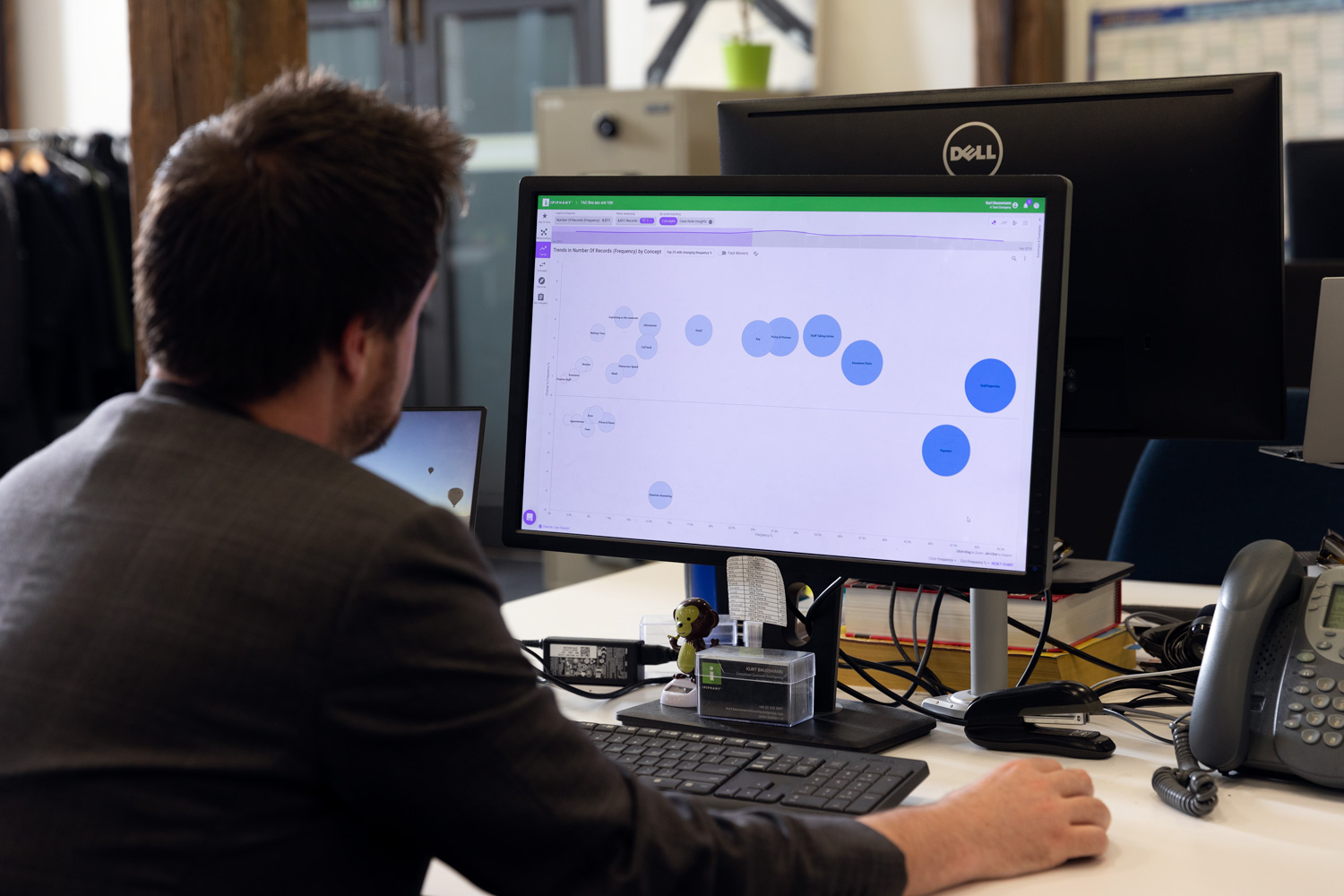Touchpoint Group Passes First Annual Audit for ISO 27001:2013 Certification
In June 2021, thanks to our dedicated Chief Information Security Officer, Karen Leisenfeld and her team; Touchpoint Group successfully passed it’s first annual audit.

According to research from the Edelman Trust Barometer Survey 2019, 55% of workers worry that automation will take away their job.
I understand why people worry, but I’m frustrated for them as this fear overshadows the boundless career opportunities new technology brings. Back in the late 70s, I was an accountant preparing complex consolidations for a large brewery group. My spreadsheets consisted of several A3 pieces of paper with multiple columns, and my calculations were performed manually.
With a couple of hundred companies to consolidate while maintaining compliance with complex consolidation accounting rules, the exercise was frustrating and incredibly time-consuming. My biggest challenge was keeping the spreadsheet balanced, and my worry that it wasn’t was so great that I’d lose sleep over it.
In the very early 80s, before the advent of Microsoft Excel, I was an early adopter of rudimentary spreadsheet software. Even back then, the software saved 90% of the time I had been spending on keeping my spreadsheets balanced and lifted considerable stress off my shoulders. The result? I was able to apply my time saved to more fulfilling matters for both the company and myself. The huge shift in the way this technology influenced the human workload happened in under five years.
Advances in software and technology continue to have profound impacts today, and our very own AI Customer Analytics product, Ipiphany, is no exception. It has revolutionised the way analysts work by removing the human processing component in analysing unstructured customer data for insights. This activity is practically impossible for more than 100 items if an analyst has to read records individually, and believe it or not, they still do this!
Not only is this a tiresome task it’s also hard to eliminate individual bias when extracting insights. While back in the 80s software saved me some 90% of my time with those complex spreadsheets, Ipiphany provides a 95% time savings for analysts when compared to traditional approaches (including old fashioned software). What’s most important, though, in this age of information overload: the analysts can now process much, much more.
Uber in Australia is a perfect example. Before switching to Ipiphany, they were using Excel coupled with Power BI. It would take 3 weeks for an analyst to conduct “an analysis” for less than 10k rows of data, but even then they weren’t confident of the results. In their first test of Ipiphany we processed 17k items (a very small dataset in the Ipiphany world) of unstructured data. It took under 10 minutes for Ipiphany to process and for the analysts to gain a top-level view of what was in the dataset. Uber ended up finding surprising insights into the data that were never before discovered, and the analyst saved himself several weeks’ worth of work. The analyst has since been promoted. He was smart!
New technology isn’t something to fear. When combined with human collaboration, it’s helping to arm us with more relevant information so that we can make more informed decisions and spend our time in more productive ways. We’re working smarter, not harder - and I’m sleeping more soundly at night.
Schedule a demo using your own business data to witness the power of Touchpoint Groups AI Analytics Tool in real time, and let us know what you’re looking for!